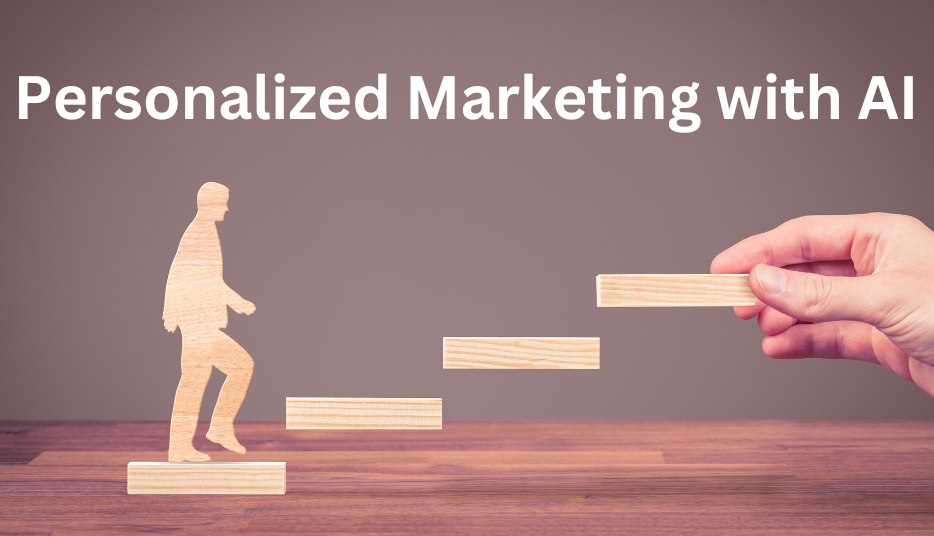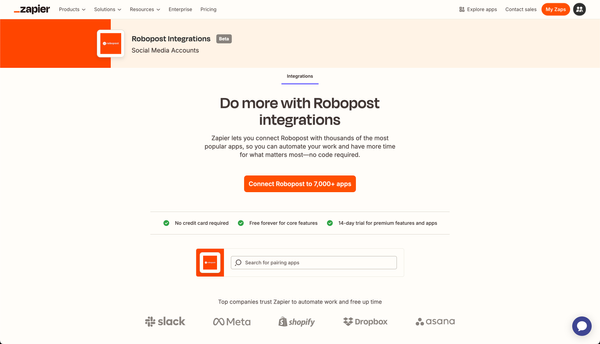Personalization at Scale: How AI Enhances Social Media Marketing
Explore how AI revolutionizes social media marketing with tailored content, real-time analytics, and personalized engagement.

AI is becoming a key to create personalized experiences on social media. Brands use AI to connect more meaningfully with their audiences. AI helps by analyzing data, predicting trends, and automating tasks, allowing marketers to deliver content tailored to individual preferences and behaviors. This leads to stronger engagement and loyalty.
Key Takeaways
- AI tools like Facebook's Lookalike Audience and Google's Custom Intent Audiences help create personalized content by analyzing user data.
- AI-powered social media tools provide real-time analytics and sentiment analysis, helping businesses improve their strategies and boost engagement.
- AI automation makes ad campaign management easier while keeping content personalized on a large scale.
- Small businesses use AI in social media to compete better by using advanced analytics and automating marketing tasks.
- While AI enhances personalization and efficiency, it's important to consider ethics and maintain authenticity to build user trust.
The Role of AI in Crafting Customized Content

Understanding User Preferences and Behavior
AI helps understand and cater to user preferences and behavior for social media marketing. By analyzing data like likes, shares, and time spent on content, AI can identify unique patterns and preferences for each user. This data-driven approach allows marketers to create content that matches individual interests, boosting engagement and loyalty.
- Linguistic analysis makes sure the tone and language fit the user's preferences.
- Predictive analytics find the best times to place ads, increasing engagement.
The statistic "41% of users believe AI enhances their social media experience" shows a positive reception of AI's role in personalizing user experience. It indicates a growing acceptance and appreciation for AI technologies, highlighting their potential benefits in terms of convenience, relevance, and user engagement.
Automating Content Curation and Distribution
The use of AI in social media marketing has changed how content is created and shared. AI can now analyze lots of data to find trends and user preferences, allowing for automated content creation and scheduling. This makes the process smoother and ensures that content reaches the audience when they are most likely to engage.
Platforms like Robopost AI to automate content creation and optimization, reducing manual work while keeping high standards.
The benefits of using AI for content creation and distribution include:
- Efficiency: Reducing the time and resources needed to produce content.
- Scalability: Increasing content output to meet marketing needs without extra effort.
- Consistency: Maintaining a uniform brand voice and look, important for brand recognition.
While these benefits are clear, it’s important to balance automation with a personal touch to keep social media marketing authentic.
Enhancing Content Relevance with AI Insights
AI is changing how marketers make content relevant on social media. By analyzing lots of data, AI finds patterns and trends to help create content that connects with the audience. Natural language processing (NLP) tools are great at understanding customer feedback and social media sentiment, giving better insights into customer preferences.
Using AI-driven analytics lets marketers see how their campaigns are doing in real-time and quickly adjust their strategies to get the best results. This flexible approach improves engagement rates and builds stronger connections with audiences.
AI also predicts how posts will perform, guiding future content strategies. By learning from past interactions, AI can suggest new content ideas and improve brand personalization, making marketing efforts more effective.
AI-Driven Analytics and Consumer Engagement

Real-Time Feedback and Strategy Optimization
AI in social media marketing has changed how brands connect with their audience. AI analyzes past engagement data to get valuable insights for future strategies and better content performance. It looks at data like likes, shares, comments, click-through rates, and conversion rates to find patterns in user behavior.
AI-driven segmentation allows for real-time changes. As customers interact with your brand, the AI updates segments with new data, making your marketing flexible. It can trigger targeted campaigns when a change in behavior is detected. Over time, machine learning improves these segments by learning from campaign results, creating more personalized customer experiences.
Predictive Analytics for Future Trend Forecasting
Predictive analytics, powered by AI, is changing how social media marketing predicts consumer behavior and trends. Machine learning (ML), a part of AI, is especially good at analyzing large amounts of data to find patterns and outliers that can guide future marketing strategies. By looking at past ad campaigns and factors like click-through rates and engagement, ML algorithms can predict the success of future ads, helping to improve targeting and content personalization.
The predictive power of ML isn't just theoretical; it has significant market potential. According to IDC Research, the market opportunity for Generative AI (GenAI) is expected to reach $151 billion by 2027, which is just a part of the overall AI market, projected to surpass $500 billion globally.
The benefits of predictive analytics in social media marketing include:
- Predicting campaign performance with advanced algorithms
- Automatically adjusting budgets to maximize high-performing ads
- Reducing waste in ad spending on ineffective platforms or demographics
- Customizing spending strategies across different social media channels based on smart forecasts
- Achieving higher returns on investment (ROI) through data-driven decisions
By using these insights, agencies can allocate budgets more effectively, ensuring maximum ROI and creating more meaningful connections between brands and consumers.
Sentiment Analysis to Gauge Brand Perception
Sentiment analysis helps businesses understand how people feel about their brand. By sorting comments into Positive, Negative, or Neutral categories, companies can see how the public reacts to their products, services, and marketing. This sorting also includes spotting key phrases that show why people feel a certain way.
Sentiment analysis usually uses Natural Language Processing (NLP) to go through large amounts of text. This text can come from social media, customer reviews, and discussion forums, giving a clear picture of general feelings and opinions. These insights are very useful for marketers, as they can quickly adjust their strategies to improve how the brand is seen.
Additionally, sentiment analysis is about more than just watching; it's about reacting and changing. Using tools that can handle sentiment analysis on a large scale lets businesses engage proactively, making sure customer feedback leads to real improvements.
Scaling Personalized Marketing with AI Automation
Efficient Ad Campaign Management
AI has transformed social media marketing, making ad campaign management more efficient and effective. AI tools are essential for predicting how campaigns will perform and adjusting budgets to focus on the best ads, reducing wasted spending. This smart budget use means resources are better spread across different social media channels, leading to a higher return on investment (ROI) through decisions based on data.
AI also helps by creating many ad versions and analyzing their performance, helping to find the best messaging tactics. This includes tweaking the wording and psychological elements of ads to match what engages users, greatly improving real-time engagement, click-through rates, and conversion metrics.
Customization at Scale: Balancing Automation and Personal Touch
In social media marketing, AI has changed how we personalize content for different audience segments. Tools like Facebook's Lookalike Audience and Google's Custom Intent Audiences study user behavior and demographics to create content that really resonates. However, keeping the human touch that fosters genuine engagement is challenging.
It's important to balance AI efficiency with human authenticity. Marketers should use AI tools to support, not replace, human creativity. The goal is to combine data-driven insights with the emotional intelligence only humans can provide. This balance helps create content that is both targeted and deeply engaging.
Here are key points for balancing automation with a personal touch:
- Being responsive to new trends
- Customizing content at scale
- Adjusting ad bids in real-time
- Using detailed consumer insights to guide strategy
By carefully combining AI's efficiency with human creativity, marketers can create content that is both highly targeted and deeply engaging.
The Impact of AI on Small Business Social Media Strategies

Leveling the Playing Field for Small Enterprises
AI is a game-changer for small businesses. By using AI tools, these companies can compete effectively with larger ones, even with fewer resources. AI-driven solutions provide customizable and scalable options that meet the specific needs of small businesses in industries like retail ecommerce, B2B ecommerce, marketplaces, media, and SaaS.
Integrating AI into social media strategies allows small businesses to market more precisely. They can now use AI to better understand their audience, automate content distribution, and optimize marketing efforts in real time. This widespread use of technology ensures that even startups can have a significant impact on their target market.
Responsible AI Practices for Customer Trust
Ttrust in AI is crucial for maintaining brand loyalty and customer engagement. Ethical AI practices aren't just rules; they're essential for building a lasting relationship with consumers. As AI's role in social media marketing grows, businesses must prioritize responsible development and use of AI technologies.
To ensure AI systems are trustworthy and respect user privacy without reinforcing biases, consider these practices:
- Privacy Concerns: Protect consumer data to prevent misuse.
- Bias and Fairness: Identify and correct biases in AI algorithms.
- Job Displacement: Consider the impact on employment as AI takes on more roles.
Regular monitoring and diverse data sets can reduce bias, while human oversight ensures content remains genuine and connects with the audience. Balancing AI efficiency with human connection is key for businesses using AI while maintaining their authentic voice.
Navigating the Challenges and Ethics of AI in Social Media
Maintaining Authenticity with AI Influencers
The rise of AI influencers has introduced a new dimension to engaging audiences. Balancing efficiency with authenticity is key. Content creators must use AI tools thoughtfully, blending them seamlessly while preserving the essential human connection that drives engagement.
By combining AI's efficiency with human creativity, content resonates more deeply with audiences. This blend not only improves user experience but also strengthens the brand's integrity. To safeguard authenticity, consider these steps:
- Regularly review AI-generated content
- Use diverse data sets to reduce bias
- Follow ethical guidelines
- Maintain human oversight to preserve genuine voice
As AI plays a larger role in social media optimization, addressing concerns about bias and preserving human authenticity is critical. Finding the right balance is crucial for brands to maintain trust and genuine connections with their audience.
Ethical Considerations in AI Deployment
The use of AI in social media marketing raises numerous ethical concerns. Ethical governance is vital to ensure AI integration aligns with societal values and legal standards. The interaction between AI and social norms underscores the importance of global discussions on AI's impact on geopolitics and power dynamics.
Ethical AI isn't just about following regulations; it's also a competitive advantage. It appeals to consumers who value transparency and ethical behavior. This shift in consumer expectations requires a reassessment of how AI is used in marketing strategies.
To address these ethical challenges, consider these steps:
- Regularly monitor AI systems to identify and correct biases.
- Use diverse datasets to train AI models for fair and unbiased results.
- Establish ethical guidelines for AI use in content creation.
- Maintain human oversight to preserve the authenticity and genuine voice of content.
User Perception and Acceptance of AI Features
The integration of AI into social media platforms has created a complex landscape of user attitudes. A notable 41% of users believe AI improves their social media experience, signaling a shift towards accepting AI-driven features. These features, like personalized recommendations and automated content curation, are credited with enhancing user engagement and convenience.
However, embracing AI comes with challenges. Users often seek a balance between AI's efficiency and authentic human interaction. The concept of AI influencers, for instance, underscores the importance for brands to carefully integrate AI without compromising trust.
Factor | Positive Perception | Negative Perception |
|---|---|---|
Personalized Recommendations | High | Low |
Automated Curation | Moderate | Moderate |
AI Influencers | Low | High |
The table above shows varying user perceptions across different AI features. It's evident that while AI can greatly enhance social media experiences, responsible deployment is crucial to maintain user trust and ensure positive reception.
Conclusion
AI has become an essential tool in social media marketing, offering unparalleled capabilities for personalized communication on a large scale. By analyzing data like demographics, behavior patterns, and sentiment in language, AI helps marketers create content that deeply connects with their target audience. Automating ad campaigns and responding quickly to trends have transformed how businesses approach social media, ensuring efficiency and high customization levels. While challenges like the credibility of AI influencers persist, AI's overall impact on social media marketing is undeniably positive. It equips businesses with tools to boost engagement, enhance competitiveness, and gain valuable insights. As AI evolves, it promises to refine strategies further, driving successful social media campaigns and fostering meaningful brand-consumer relationships.
